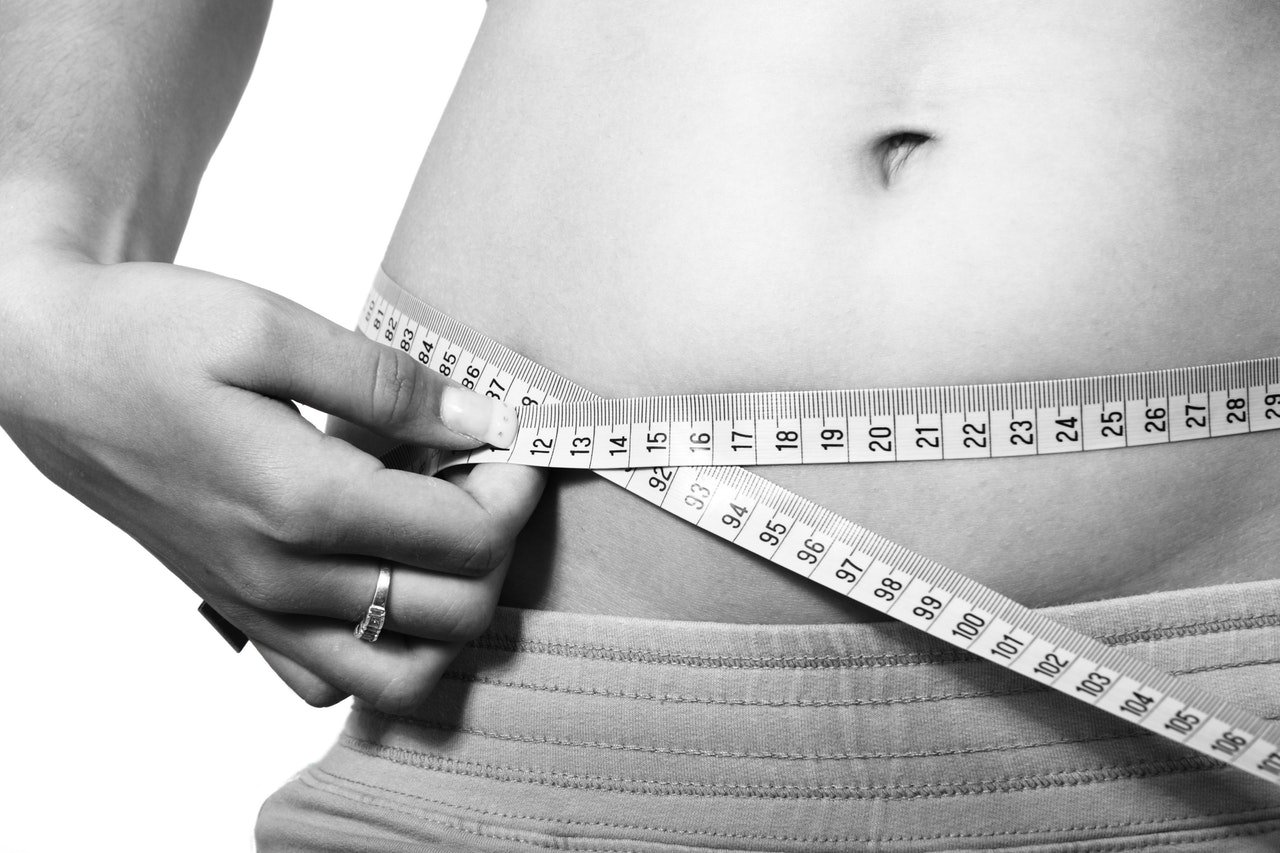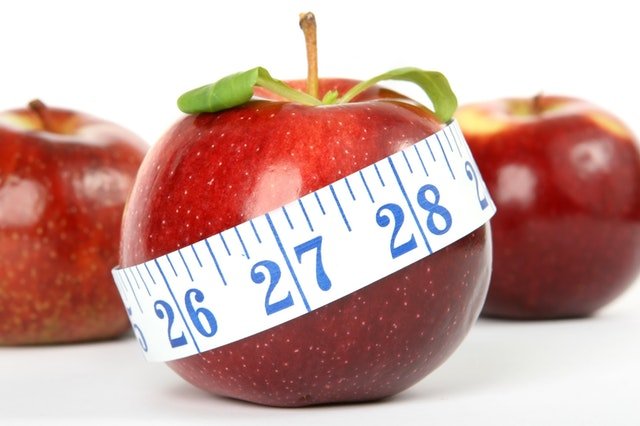Being Fat In A World That Loves Thin

Am I fat? Depends on who you ask the question to. Having recently returned to the gym after a one year hiatus, I sure feel out of shape but that is what happens when you are surrounded by martial artists with six packs! Yet feeling fat and being fat are two entirely separate things. I have very close friends who have been battling weight issues for years. When they walk in a room, most people immediately judge them for their size.
This is not fair and though it is impossible for one to truly walk in another’s shoes, our capacity for compassion and empathy can melt the icy barriers of prejudice that tend to separate us from each other. Recently, I enjoyed the good fortune of reading the autobiographies of two amazing women who have opened my heart to the struggles of being overweight in a world that is obsessed with losing weight.
Monica Parker’s Getting Waisted: A Survival Guide to BEING FAT in a Society that Loves Thin, is a must read for anyone and everyone! Anita, my wife, was perplexed to find me laughing aloud on countless occasions with this book. “What’s so funny?” she would ask. I would then recount the humorous anecdote from Monica’s life and Anita would laugh too. Monica bears her soul in a most entertaining fashion. Her ability to see the humour in the everyday absurdities of modern day life and to crack plenty of jokes at her own expense left me in awe. She is an incredible woman who has been through a lot in life and found a way to rise above it all. Monica is also an accomplished actor, writer and producer in theatre, television and film.
In her book, Monica attests to having tried almost every diet invented by humankind including the oddest of fads such as The Baby Food Diet, Eat Nothing White Diet and Urine Shots! She has even tried every weight loss program recommended by Oprah. And though Monica has excelled in losing plenty of pounds throughout her years, the fat always found its way back.
I knew how to lose weight! I had done it over and over again. I had a gold star for losing weight and a platinum one for gaining it back: fifteen pounds lost, thirty-five found; sixty pounds lost, a hundred pounds found. Off it came and on it went like a cheesy “lights on, lights off” Clapper, just as it does with 90-plus percent of those who lose weight.
Her conclusion is that diets don’t work and that is consistent with much of the research done on all diets. Diets fail. Though people lose weight while on them, they tend to regain it all back.
What I found fascinating about Monica’s life stories was that I could easily relate to her pain. Though I have never been fat per se, I have experienced prejudice. As a kid, I grew up in Barrie when it was pretty much an all-white town. I was called racist slurs throughout grade school giving me an Ugly Duckling complex. I know what it is like to suffer from people’s tendencies to judge a book by its cover.
Yet irrespective of whether you consider yourself to have been a victim of prejudice or not , there is a universality to the pain we all endure as human beings. Bad things happen to good people all the time. The injustices and insecurities of life are difficult for us all to bear. To cope, we all seem to be looking for something to fill the void. In her own words, Monica confesses that food was her way of coping with this sense of something missing:
I believe I began my lifelong love affair with food to fill some hole, but also so that I would get bigger and bigger so that I couldn’t be ignored. Food soon filled any void created by too much information and isolation, allowing my skin to thicken, along with all my other parts.
We all cope in different ways and Monica is perceptive in recognizing this:
There were those who would condemn me for falling back into my comfort zone of food but I didn’t care. I don’t judge those who drink too much, snort too much, sleep around too much, organize their clothes on colour-coordinated hangers – whatever it takes to get them to the other side of a difficult and thorny patch of life – I take my hat off to them. As long as the only person they’re hurting is themselves. It’s better than jumping off a bridge, leaving a mess for others to clean up. The only bad part about being a secret eater is that it isn’t possible to remain one, as my pain-relieving ways showed themselves through.
Unfortunately, when it comes to being fat in a society that loves thin, there is this underlying assumption that people get fat because they are either lazy or undisciplined. A fat person is judged and then blamed for weaknesses that we all possess in varying degrees. However most of us can hide our ways of escaping or alleviating pain. A fat person cannot enjoy such a privilege. Success addicts, for example, can boast about their accomplishments without anyone suspecting their compulsion to get ahead is motivated by the a desire to escape their pain – the same desire shared by those binging on food for some transient comfort in this otherwise cold, cruel and quick-to-judge world.
In 2017 Roxane Gay, a New York Times bestselling author, released her memoir entitled Hunger. At her heaviest, she weighed 577 pounds. The tone of this book is more serious as Roxane divulges a dark secret that had remained hidden inside her for too long. Her words evoked within me a sense of how difficult it must have been for her to finally open up. She was raped when she was 12 years old by an older boy who she had liked and his group of friends. The incident is horrific and I just shudder to imagine how a young girl could be treated in such an inhumane fashion. Worst of all, Roxane felt so ashamed and guilty from the experience that she never felt safe or comfortable enough to tell anyone what happened.
Eating became both a coping and a defence mechanism,
I was hollowed out. I was determined to fill the void, and food was what I used to build a shield around what little was left of me. I ate and ate in the hopes that if I made myself big, my body would be safe. I buried the girl I had been because she ran into all kinds of trouble. I tried to erase every memory of her, but she is still there, somewhere. She is still small and scared and ashamed, and perhaps I am writing my way back to her, trying to tell her everything she needs to hear…
I was swallowing my secrets and making my body expand and explode. I found ways to hide in plain sight, to keep feeding a hunger that could never be satisfied – the hunger to stop hurting. I made myself bigger. I made myself safer. I created a distinct boundary between myself and anyone who dared to approach me. I created a boundary between myself and my family. I became of them but not.
Like Monica Parker, Roxane Gay also uses the word void to describe that emptiness she had been desperately trying to fill her whole life:
I had (and have) this void, this cavern of loneliness inside me that I have spent my whole life trying to fill.
This void is truly an unavoidable reality. I have sensed its presence my whole life and I suspect that many people can relate to this. Irrespective of whether we are fat, thin, rich, poor, young or old, we all experience such discomforts. Yet some of us become more acutely sensitive to it on account of having endured traumatic experiences that have forced us into close proximity with the terrifying uncertainties of life.
Monica Parker also shares what had been her dark secret for many years. She had been raped during a first date with a young man. Instead of reporting the incident, she was also too embarrassed and ashamed of what had happened. I have been studying the #MeToo movement very closely and most, if not all, victims of abuse have admitted to feeling a deep sense of shame for what happened to them. Even though it is obvious that it is not their fault, we still live in a culture that has made it very difficult for women to speak out. As a man, I am extremely grateful to the courage of all women who are boldly speaking out against the crimes because this is how needed change will occur. Those who abuse power are the ones who should be ashamed, not the victims of that abuse.
I love Oprah. She has been a source of inspiration and insight on countless issues. Yet it’s no secret that Oprah has been struggling with her body image for decades. Roxane Gay is very perceptive in pointing out the contradictions in Oprah’s message when it comes to our bodies:
This is the woman who brought us the idea of living our best life, of becoming our most authentic selves. And yet. In 2015, Winfrey bought a 10 percent stake in Weight Watchers, an investment of $40 million. In one of her commercials for the brand, she says, “Let’s make this the year of our best body.” The implication is, of course, that our current bodies are not our best bodies, not by a long shot. it is startling to realize that even Oprah, a woman in her early sixties, a billionaire and one of the most famous women in the world, isn’t happy with herself, her body. That is how pervasive damaging cultural messages about unruly bodies are – that even as we age, no matter what material successes we achieve, we cannot be satisfied or happy unless we are also thin…
In yet another commercial, Oprah sombrely says, “Inside every overweight woman is a woman she knows she can be.” This is a popular notion, the idea that the fat among us are carrying a thin woman inside. Each time I see this particular commercial, I think, I ate that thin woman and she was delicious but unsatisfying. And then I think about how fucked up it is to promote this idea that our truest selves are thin women hiding in our fat bodies like imposters, usurpers, illegitimates.
I imagine that Oprah would probably be among the first to admit the importance of loving ourselves as we are. And yet her commercials are conveying the opposite message. They are promising that you will feel more worthy of love when you lose some weight. Roxane may be naively overlooking the commercial interests that might be driving such a message. There is a lot of money to be made in exploiting our vulnerabilities around body image.
The desire to be thin is no different from any other desire. We are all insecure in different ways. I want to thank Monica Parker and Roxane Gay for their wonderful books. I am hoping that the courage of these two incredible woman in writing such candid and moving accounts of their struggles will inspire other men and women to open up about their vulnerabilities. We need to stop judging ourselves and others against these impossible ideals.

Sign up to my weekly mailing list for free tips and advice to help improve your life today. You will also receive exclusive offers to my upcoming events.
